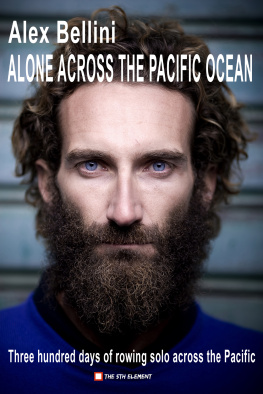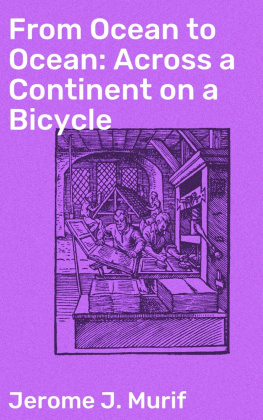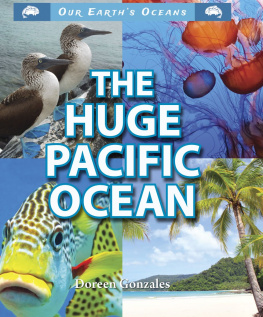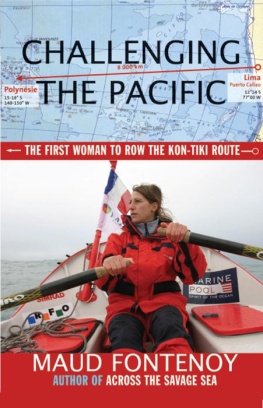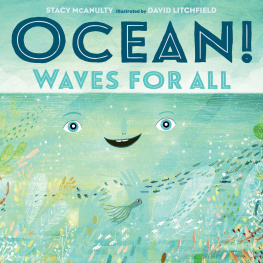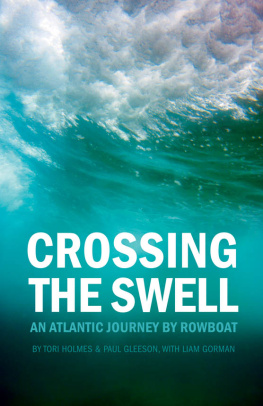Contents
This ebook is copyright material and must not be copied, reproduced, transferred, distributed, leased, licensed or publicly performed or used in any way expect as specifically permitted in writing by the author, as allowed under the terms and condition under which it was purchased or as strictly permitted by applicable copyright law. Any unauthorised distribution or use of this text may be a direct infringement of the authors and publishers right and those responsible may be liable in law accordingly.
First published in Italy in 2010 by Longanesi & Co. Gruppo Editoriale Mauri Spagnol
2013 Alex Bellini
The 5th Element Ltd
office 3230 Woburn Place
Bloomsbury
London, WC1H 0JR
UNITED KINGDOM
www.alexbellini.it
Book ISBN: 978-88-304-2745-7
Mobi ISBN: 978-0-9576457-0-7
Epub ISBN: 978-0-9576457-1-4
PDF ISBN: 978-0-9576457-2-1
Find out more about the author online at
ALONE ACROSS THE PACIFIC OCEAN
by
ALEX BELLINI
WITH A FOREWORD BY
ROKO BELIC
8 TABLES OUTSIDE THE TEXT

They say that television is the place of the excessive, the extraordinary, the over-the-top. There we see monstrous people, improbable stories, whereas on radio we talk about normal people, the world of the ordinary, real life and its everyday matters. This is why radio is more effective and appealing than television, both to listen to and to make. There is a sea between the television of the incredible and the radio of the regular. Alex Bellini crossed that divide. Or that ocean, more precisely. In fact, he crossed two oceans, as he had already crossed another ocean a few years earlier. It seems that once youve rowed one ocean, alone, on a little boat the length of a compact minivan, you get the itch to do it again on another one. I guess you get a taste for it, and the temptation to go back for seconds is only natural. So you go to Peru, you cram your little boat with a ton of freeze-dried food and a cake, and say goodbye to your wife: Dont worry, well see each other for Christmas, and well talk on the phone. Ill call you as soon as Im offshore. A few strokes of your oars and youre off. Youre off to an exceptional, extreme, impossible, epic, risky, dramatic adventure.
Youre off to solitude, distance, the sea, and its storms. Alex Bellini told a bit of his story on the radio, every Friday around 7:10 PM, on a show that was very popular with the listeners of Radio2. Now hes telling his story here, in a much more complete version, as if this were all a regular matter. He tells it with his language, from his perspective, his anthropological approach of an extreme traveler, like a friend, or an office-mate. He tells about himself and talks about us. Together.
Like no one before him, Alex Bellini has managed to join the extreme and the everyday. Distance, isolation and solitude come together with community and familiarity. Thousands of miles from any inhabited place, months after his only encounter with other human beings, Alex managed to stay close, very close, to others. He was part of a community, together with all of those who followed him, supported him, wanted to know more, and show him that they were with him. He was a solitary traveler, more than even those of the 19th century, but alone in company, with a great mix of people, a community of kinship. He rowed alone, every day, but he brought thousands of people with him. Live. He did so a bit through the radio and a lot with the Internet. He told his story every day, skilled at changing perspective on each occasion, though it would seem his stories would have the same ingredients: sea, sun, oars. He answered every question of all his listeners. And I mean every question. Questions that truly ran the gamut, from the perception of God in the South Pacific to the use of sunscreen in that same sea. With his mountain-mans patience, he always answered even the silliest questions like those that extreme adventure seem to elicit from people who stay at home. When he got a bit tired of it, he merely commented that he wouldnt answer questions hed already answered, saying so courteously; classiness like his is a rare thing.
Many of these silly questions were asked by us, on the radio. Because we cant help ourselves. But communication was made.
Between Alex in the Pacific Ocean, and Caterpillars listeners, in their living rooms or stuck in traffic on the highway, inching along the few miles separating them from home, after work on a Friday afternoon. Two extremes that couldnt be further apart, yet, able to communicate, creating a traveling community. More traveling for Alex, despite the winds and currents; and less for those in their cars, stopped, stuck in jams. A comparison came to mind, with all due respect for Alex Bellinis courage: who is doing the crazier thing? Is it the guy in the middle of the ocean or the one trapped on the highway like he is every day?
Ultimately, Alex Bellini is the first traveler of the new generation, the first in a line of a new breed of Italian explorers, whose most illustrious predecessors include the likes of Walter Bonatti and Ambrogio Fogar. What Alex brought new to the game, which brings him an evolutionary leap ahead, building a new strand of DNA for extreme athletes, was his ability to take with him in his boat, on his adventure, thousands of enthusiastic supporters, through new technology (the Internet) and old (the radio). These people took part in his adventure from the inside and were involved in it in ways that would have been unimaginable five or ten years ago. No one in any field had ever managed to do so before. We could say that even more than his accomplishment itself, it is the way in which it was done that makes Alex Bellini not only the first Italian to have rowed across oceans, but the first in the world to have done so in participatory solitude.
Alex set a new paradigm, on his own, without marketing managers, look stylists, or other such ridiculous excesses. He did it with the simplicity of someone who always finds his way home, whether in the middle of the ocean, or on the highway with our listeners.
In the midst of all this was a strange communication tool, the satellite telephone, Iridium. This extreme tool, Iridium (with its associations with the American army, from Iraq, Afghanistan, and journeys to the South Pole) has been domesticated and brought into our everyday lives.
Alexs wife, Francesca, called him one evening from a cafe in a square in Lavagna (a seaside city, not coincidentally). She asked him how it was going and wished him a good night, even if its night in Italy and day in the southern hemisphere. With moving from time zone to time zone, we could never figure out if it was the day of the day before or that of the next day. It was one phone call among many that Francesca made to Alex, just like any of us might call our loved ones. With the naturalness of communication. Though perhaps a little more expensive when the bill came due.
We have gotten so used to Iridiums particular sound, the distortion of the voice from bouncing across the skies, that the voice of anyone using it becomes the voice of Alex Bellini for us. Just like what he is telling us here in this book.
Massimo Cirri, Filippo Solibello
Just after nine in the morning, Australia suddenly appeared on the horizon. While my eyes drank in that long-sought land, the unexpected question popped into my mind of what would be left of this moment in ten or twenty years. Which feelings would survive the passage of time and which would be lost forever? Would I have a happy memory of it? Or would I end up wanting to go back in time and rewrite my history?
Whatever happens in a persons life, good or bad, it is the best thing that can happen for that person in that moment. These words were at the end of the last text message my wife Francesca had sent me a few days earlier on my satellite phone. I had repeated them in my head over and over in these last hours and now I thought I was starting to see their deeper meaning. The disappointment that I had felt at first at having to stop so few miles short of the Australian coast had given way to a total, serene acceptance of my fate. Life can be so strange and unpredictable, I thought. It makes us go around and around and then it ends up taking us exactly to the place we had done everything to avoid.
Next page
